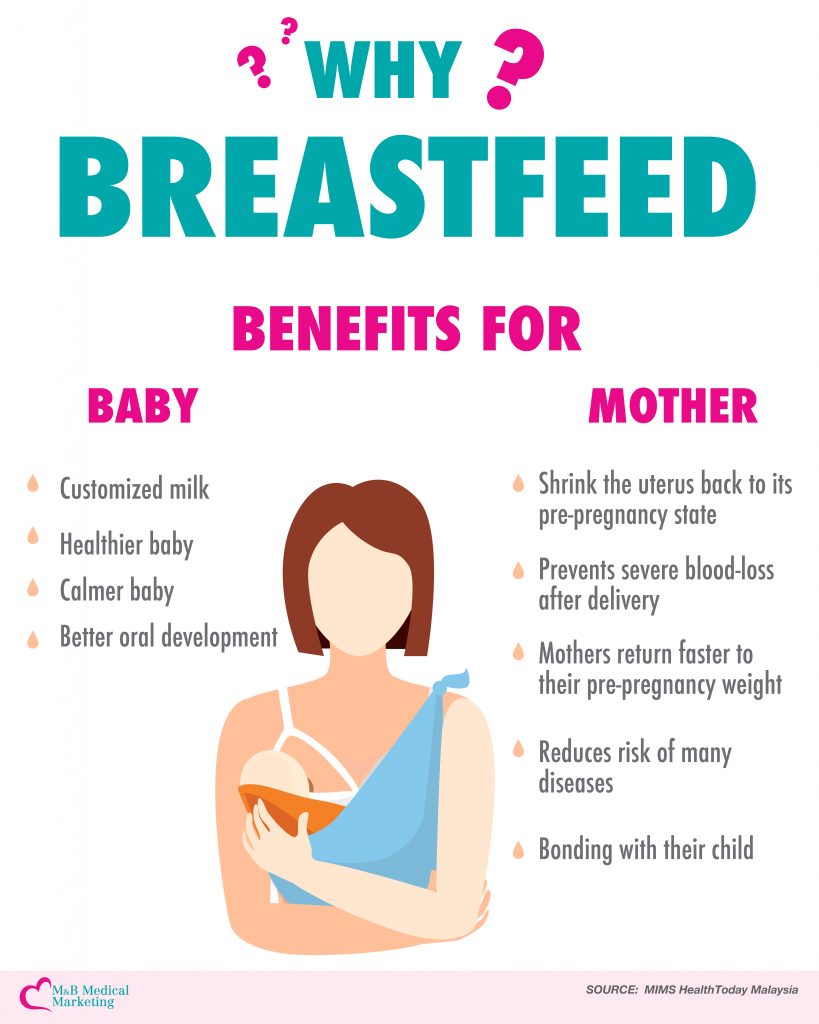
Special contribution by Gina Yong
Breastfeeding is simple but not necessarily easy for some mothers. When I was pregnant with my eldest son in 1996, everybody around me started giving me advice on everything
– what to eat, what to avoid, childcare, everything except breastfeeding! The few who mentioned breastfeeding only told me about how difficult it was and that “not everyone has milk”.
Then, unlike today, there wasn’t much information available. I did attempt to breastfeed my eldest boy, but gave up almost instantly when he started crying. I was in pain, and everyone around me told me I was “starving the poor baby”. And so, my first baby was formula-fed.
Subsequently, I successfully breastfed my three younger ones, the result of good support from a lactation consultant as well as more knowledge and information made available later on.
Breastfeeding is actually really simple – put the baby to the breast, latch on and feed. Simple, right? But it’s not necessarily easy for some mothers.
When it comes to breastfeeding, it’s of vital importance that we educate and prepare ourselves with facts, not just hearsay.
It’s important to know and understand what’s normal, and what’s not, and how to overcome the potential challenges.
WHY BREASTFEED?
Breastfeeding is one of the most natural expressions of a mother’s love. Though it is true that there are techniques which are important to ensure a satisfying breastfeeding experience, it is also connected to how you are feeling about your body and your baby. Do you have confidence that it will work out? Would you want to continue when there are difficulties and challenges?
Benefits for the Baby
Customized milk: Breast milk is a liquid rich in fats, minerals, vitamins, proteins, enzymes and disease fighting-immunoglobulins. Although mature milk is 80% water, the remaining 20% is a power-packed perfect food for growth and development. The composition of breast milk changes constantly to keep up with the baby’s needs. In other words, all the nutritional needs of your baby have been created by Mother Nature for optimal growth and development during the first six months of life.
Breast milk is the perfect food for your baby and should be the exclusive diet (no water or formula or any other liquids) for your newborn throughout the first six months of his or her life.
Healthier baby: It’s a fact that breastfeeding reduces the risks of many acute and chronic childhood illnesses, and that it is the best food for a premature infant. About 80% of the cells in breast milk are macrophages – cells that kill bacteria, fungi, and viruses.
Additionally, when the mother is sick, she produces antibodies to whatever disease present in her environment, making her milk custom-designed to fight diseases her baby is also exposed to. Some studies indicate that a sick baby suckling on Mummy’s breast actually send a signal to Mummy to produce the right antibodies to protect the baby.
Calmer baby: Mother’s milk contains certain natural chemicals that seem to “knock out” or calm fussy babies. The baby also becomes calmer when he’s skin-to- skin, sucking at the mother’s breast. Many choose to breastfeed for a longer time as it’s the perfect way to calm an agitated toddler.
Better oral development: The way a baby sucks on his mother’s nipples is very different from sucking from a bottle. There is evidence of a lesser need for orthodontics in children who breastfed more than a year. Breastfed babies also have better and earlier speech formation with improved facial muscle development from suckling at the breast.
Benefits for the Mother
• The hormone oxytocin is released during suckling. This hormone helps shrink the uterus back to its pre- pregnancy state and also prevents severe blood-loss after delivery.
• Mothers return faster to their pre- pregnancy weight as breastfeeding uses up the fat deposits in the hips, thighs and bottom which were laid down during pregnancy as a ready energy source for milk production.
• Reduces risk of many diseases, such as ovarian and pre-menopausal breast cancers as well as osteoporosis.
• Mothers who breastfeed share a special emotional relationship and bonding with their child.
Gina Yong is a highly energetic and driven breastfeeding counsellor and entrepreneur who enjoys sharing knowledge and experiences with others.
Gina founded The Breastfeeding Advocates Network (TBAN) on Facebook in 2009 and Gina’s Place : The Breastfeeding Post-natal (Confinement) Centre in 2014. She is also the author of Love Breastfeeding.
SOURCE: MIMS HealthToday Malaysia
